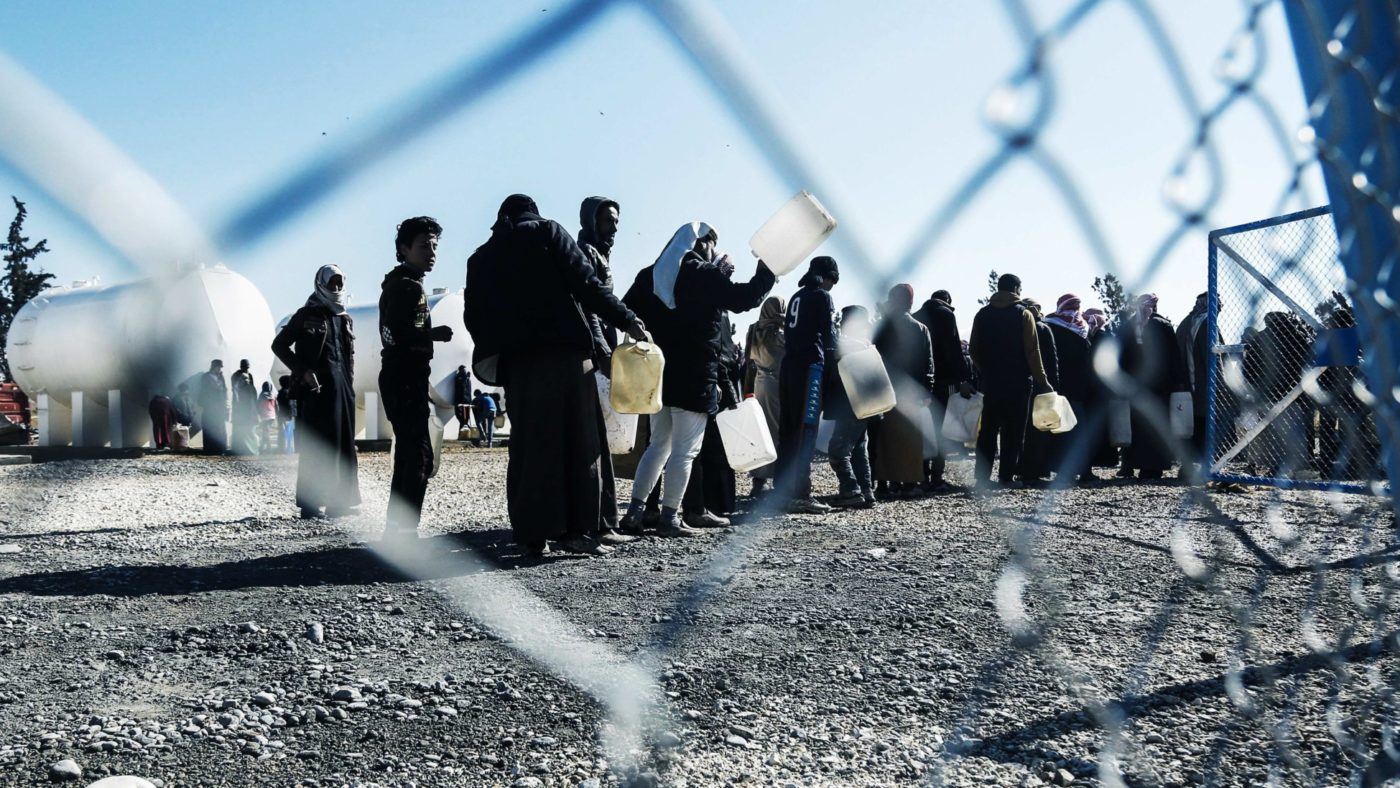The world has a refugee crisis because the issue has long been left in a silo of humanitarian relief. The United Nations system views refugees purely as victims to be relieved by the provision of food and shelter. The organisational form that this has taken is the camp: refugees are supposed to go to camps where food is distributed for free, and shelter is in portable homes.
Yet globally, most refugees ignore these camps, as have the Syrian refugees in the neighbouring havens of Jordan, Turkey and Lebanon. Instead, they have headed for the cities: there they can hope to find work, albeit illegally, since host governments have seldom permitted refugees to do so. Refugees bypass the camps because their priority is not free food and shelter but to restore autonomy to their lives.
For autonomy they need to earn a living: put simply, they need a job. But neither the United Nations High Commission for Refugees, nor the NGOs, can meet this need. They lack both the mandate and the skills. There is no mystery as to which organisations generate jobs: it is businesses. But businesses have parked the issue of refugees into corporate social responsibility and sent blankets to camps. What refugees want from businesses isn’t blankets, but jobs.
In Refuge: Transforming a Broken Refugee System, Alex Betts and I take the Syrian refugee crisis as an example of how a new, business-based, approach can work. Since 2011, around a million Syrians displaced from their homes have crossed into Jordan.
Few of these people joined the trek to Germany: most refugees have no desire to become migrants. But they do want to work; understandably, the Government of Jordan was wary of permitting them to do so, given that jobs are scarce even for its citizens.
Together with the World Bank, we crafted an approach in which international business would be encouraged to bring jobs to Jordan’s industrial zones. The new jobs would be shared between refugees and Jordanians in the ratio 7:3. Despite the evident needs of refugees, the World Bank had been inactive in Jordan because, as an upper-middle income country, it was excluded from assistance.
But in October 2016 the Bank’s Board changed the rules, approving a refugee loan of $300m to assist firms to bring jobs to the zones. Complementing this change, the European Commission changed its rules of market access, giving Jordan the ten years of open access it has granted Turkey.
Turkey is already deeply integrated into European supply chains, and this money and the associated changes in trade rules should enable international business to do the same in Jordan. Some international firms are already making this a reality.
Bringing work to Syrian refugees in the regional havens is both more feasible and more humane than the alternative briefly adopted in the autumn of 2015, of bringing refugees to jobs in Europe. Not only was that strategy rapidly abandoned in the face of opposition from host populations, it had three debilitating weaknesses.
First, it attracted only a small and highly selective minority of Syrians: less that 5 per cent of the Syrian population came to Europe, but the influx was 70 per cent male and included over a third of all the Syrians with a university education. Inadvertently, it may have drained the society of the people who will be most needed during post-conflict recovery.
Secondly, it has skewed the allocation of the money provided for refugees towards this small minority: for every dollar spent on a refugee in Europe, we spend less than a cent on one in the regional havens.
Finally, despite having attracted the most employable sliver of the Syrian population, Europe has struggled to provide them with jobs. Europe’s labour markets are strictly regulated in respect of minimum wages and skill credentials and these have proved to be severe obstacles: in contrast to the regional havens, few Syrians have found work.
Inadvertently, Europe has reinvented the food-and-shelter humanitarian approach to refugees with a markedly higher cost base.
What is now happening in Jordan has the potential to transform not only the prospects for Syrian refugees, but the global refugee system. A new approach is urgently needed: there are currently 20 million refugees worldwide, the highest since records began in 1950. Most of these refugees are in 10 regional haven countries, none of which is a developed country.
Their common characteristic is their proximity to societies from which people have been displaced. While it will not always be feasible to integrate the refugees in these havens into global supply chains, the focus on enabling people to earn a living is always appropriate.
Often integrating refugees into global supply chains does work. That approach is already being referred to as the Jordan Model. The Government of Ethiopia has explicitly adopted such an approach and is currently at work applying it to the country’s new industrial zones.
Despite being a very poor country, Ethiopia is one of the top 10 regional havens for refugees: it warrants major international support. It makes more sense to meet our duty of rescue to the thousands displaced from Ethiopia’s fragile neighbours by bringing jobs to Ethiopia, than to leave people to cross the Sahara, risk the hazardous crossing to Italy, and flounder on the margins of illegal employment in Europe.
The Ethiopian government has already made large investments in the infrastructure for electricity and transport connectivity in the zones. This has been complemented by Europe and the US granting easy access to their markets.
The movement of international business to the new industrial zones only began in 2012, but already it has generated many thousands of jobs. Its potential, as awareness of the new opportunities filters into boardrooms, is almost limitless. Rwanda, with an influx of refugees from neighbouring Burundi, is planning to do the same.
The refugee crisis has seared itself onto the public mind. That crisis will only subside once businesses and governments realise what it is that refugees need.


